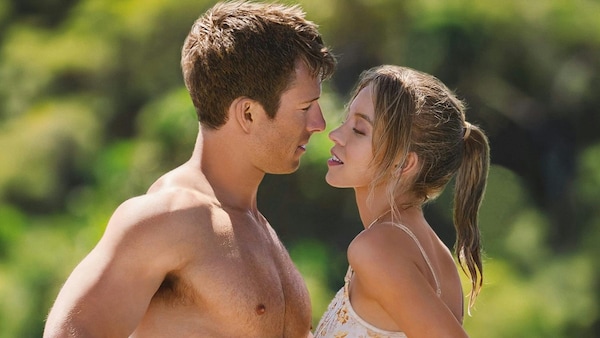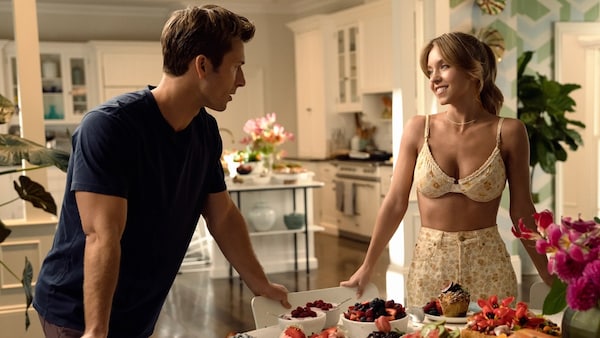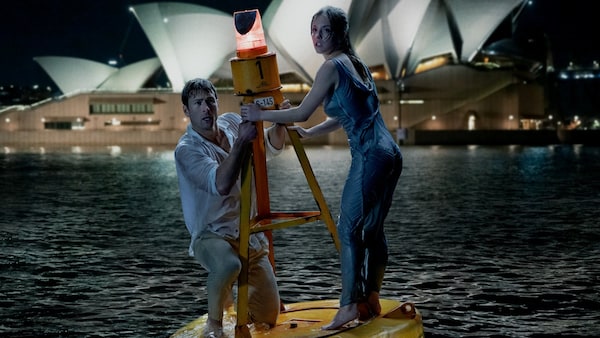Anyone But You: A Cloying And Cutesy Main-Character-Energy Romcom
This is #CineFile, where our critic Rahul Desai goes beyond the obvious takes, to dissect movies and shows that are in the news.

Last Updated: 05.14 PM, Jan 20, 2024
THE LATE William Shakespeare would not have been too pleased with the latest quasi-adaptation of Much Ado About Nothing: a Hollywood romcom called Anyone but You. The film — starring two impossibly good-looking leads who’ve generated the kind of gossip that doubles up as great publicity — is passable at best. It’s also basic at worst. (I know they’re the same thing, but that says more about the deterioration of this once-classic genre.) Mind you, I’m not just being a cranky old millennial who’s grown up in the golden era of romantic comedies like Pretty Woman, Notting Hill, When Harry Met Sally, Four Weddings and a Funeral, Love Actually or even 500 Days of Summer. I’m not even being that ancient guy sitting on a park bench and yelling: What the hell is wrong with the kids today? Anyone but You is a recycling plant of not just tropes but chemistry too. It’s the kind of movie that Instagram would produce to make us feel bad about our unaesthetic lives, looks, bodies, problems, jokes and joys.
I don’t mean to say it’s unwatchable. You get it, right? Some scenes are funny and cool; the one-liners stick (“You can’t do cardio? So you’re hot-girl fit?”); a few background characters and humour are straight out of an early Adam Sandler comedy; the needle drops are hipster (a character’s ‘serenity song’ is Natasha Bedingfield’s 2004 hit, ‘Unwritten’). But on the whole, the film is just so content with complete familiarity and a general lack of ambition that it’s hard to be charmed or entertained. Anyone but You opens with a meet-cute at a Boston coffee shop. Beatrice (Sydney Sweeney) and Ben (Glen Powell) then spend the night walking around the city, chatting, confiding, connecting, eating grilled cheese sandwiches and falling asleep together. But a (weak) misunderstanding in the morning ends this brief fairytale, only for their acrimonious paths to cross again at the quirky Sydney-based wedding of Ben’s friend Claudia with Beatrice’s sister Halle.

Ben and Bea (they sound like an ice cream together) hate each other, but naturally come up with the made-for-TV plan of pretending to date each other so that he can attract his ex-girlfriend back and she can shut up her ex-boyfriend and nosy parents. They fake-love each other until there’s no faking left. They even re-enact the Titanic scene to disastrous effect, losing themselves in a castle of make-believe gestures. And wonder of wonders: The pretending becomes real, fiction bleeds into fact. Never saw that coming, did you? Just like you didn’t see the Sydney Opera House playing a cheesy role in the climax. (I pray it has nothing to do with the actress’ name.) I get that Americans aren’t great travellers, but not even Australia tourism could’ve come up with a more superficial endorsement of the continent. Oh, and there’s a cameo by a koala bear. No kangaroos, if you’re wondering. Though there is a wild Erling Haaland lookalike, a human spoof on the typical sports-adventure-nature-banter-loving big Aussie bloke. Where’s Cate Blanchett when you need her?
A few things about the film, though. Glen Powell has a knack for this vain-but-amusing wit and quick repartee because — to quote finance dudebro Ben himself — he owns the ‘fuckboi’ persona. There’s almost a sense that he knows how terribly handsome and ripped he looks, and turns it into an in-joke of sorts. The self-awareness works, especially because you can tell that Ben is a Wall Street jerk who uses his personal life to compensate for his professional soullessness. But you can’t say the same about Sydney Sweeney, who just doesn’t seem to have the feel for the goofy-but-sexy genre stereotype. She has that Gen-Z drawl and no real talent for physical comedy, which somewhat punctures Beatrice’s girl-next-door-but-not-really vibe. Bea looks and talks like the kind of 20-something who’d be glued to her phone more often, so the rhythms of old-fashioned, comedy-of-errors love are lost on her.

But my primary issue with Anyone but You is a little more specific. I couldn’t quite pinpoint it until the film ended with a cutesy end-credits gag reel. That’s when it hit me. One of the many designs of a quintessential romantic comedy is the disarming fact that the central couple doesn’t need to be as interesting as the supporting characters. That they’re the ones becoming the story despite their ordinariness — despite the many fascinating stories around them — is the backbone of this genre. They’re underdogs because the film chose to be about them. For instance, all of Hugh Grant’s friends in Four Weddings and a Funeral (a spinster, a griever, a clown) and Notting Hill (the marriage between his best friend and wheelchair-bound ex is a story begging to be told) are far more intriguing than he is — and yet his life is the one that comes into focus. Anyone but You gets this one part right: Ben and Bea are almost boring compared to the friends and family around them. Particularly the two young women getting married — their interracial same-sex romance might have been the swooning centrepiece of most new-age movies. The irony is supposed to be rooted in how Ben and Bea steal their thunder without quite stealing their thunder.
But the part the film gets wrong is how far it goes to make B&B (sorry, I had to) its main attraction. The couple’s cishet, super-white and top-drawer American angst has an air of narrative entitlement in such a diverse and representative setting. It hogs up so much bandwidth, attention and space that it belittles the other tracks. Their antics repeatedly derail the mood of the big weekend while they promise to be better. Everyone (including the two disturbingly tolerant brides and both sets of parents) seems to be working to help and spotlight and heal them, forsaking their own identities in service of the bratty lovers. In the end, forget being ordinary, the two become unlikable and difficult to root for. It’s all about them, them, them. Ben’s best friend, a Black man, often mocks Ben’s white-people conflict, but that’s about as far as the film goes in its curated and self-defeating journey. You’re not supposed to come out of a romcom wondering if the camera was on the wrong people all along. Or let me rephrase that: You’re not supposed to come out of a romcom wondering if the film’s title alludes to the audience addressing the two protagonists. It’s true: Any bae but Ben and Bea.-

 Premium
Premium